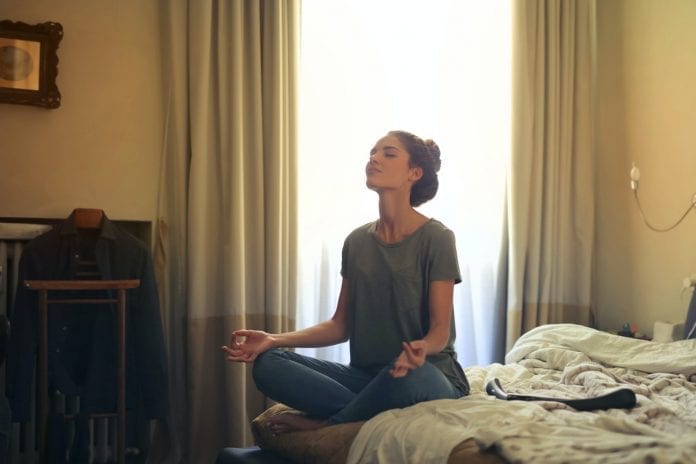I have spent twenty-four years on the earth so far, and did not even meet a single person who said, ‘I do not want to be happy and satisfied in my life.’
If you ask me one trait that we all do have, I will not think twice to answer you that it is our intense urge to be happy and satisfied with what we have in our life.
Whether it’s a weeping kid, an unstable adolescent, or a caring head of the family, we all search for anything that will reassure us.
Yet the problem is, are we going in the right direction?
To find the right route, we all need to understand the real Geist of happiness and satisfaction.
Happiness is the mental state of being happy that comes over you when you know that your life is going in the right direction and that your mental state is healthy.
Satisfaction is an enjoyable or optimistic thought, sensation, or mental state. It is linked to enjoyment, happiness, and fulfillment. Most people feel satisfaction until they get vengeance over anything that upset them.
So, what is the real source of happiness and satisfaction? You do not need to roam around the world in search of joy; it is within you. All you need to do is explore your mental state and clear up your thoughts.
Sink deep into your mind that no external factor can satisfy you when your inner self is disturbed.
Here I would love to recall the golden thoughts of Buddha about the topic,
According to innerpiecelounge.com, Meditation sessions teach the mind to “not linger on the past or imagine the potential.” This helps the soul relax on the ‘here,’ enabling one to recognize the value of what is happening at present.
Meditation is one of the responses to your happiness and contentment. Let’s discuss why meditation functions so well and how we should make use of its effects to become a healthier version of ourselves.
What is Meditation?

Meditation is a method in which a person utilizes a strategy – including relaxation, or concentrating the mind on a single topic, idea, or action. It aims to develop concentration and perception and maintain a mentally conscious, psychologically relaxed, and healthy mind and body.
History of Meditation

India is believed to be the first country where people started practicing meditations. Wall arts of the Indian subcontinent from about 5,000 to 3,500 BCE is considered to be one of the oldest documented confirmation of the practice of meditation, demonstrating individuals lying in contemplative yoga poses with partially-closed eyes.
Common Types of Meditation

People practice several different types of meditation. Most of them do not require sophisticated equipment or energy.
When you start meditation, consider selecting a type of meditation depending on what you want to get out of it.
There are two primary meditation forms – focused-attention meditation and open-monitoring therapy
One of them is focused-attention meditation in which you need to concentrate on some particular thing or sound or vision.
One is open-monitoring therapy, which promotes an enhanced understanding of your surroundings, your perception, and your self-worth. This may involve being conscious of the emotions, desires, or urges that you usually seek to suppress.
You do not need to spend hours doing meditation; a few minutes every day will help you get amazing results.
Benefits of Meditation

Here are several benefits of practicing meditation every day.
- Guided meditation classes can benefit those who have been coping with pain, depression, and stress problems.
- Daily mindfulness-based muscle relaxing techniques are proven to reduce the likelihood of recurring breast cancer.
- Another advantage for those who perform meditation is that mindfulness therapy has been found to improve blood pressure.
- The practice of health meditation makes the body learn to calm, a reward that persists until it’s time to reach the barn.
- It also teaches the mind to pay attention to an event such as breathing and encourage all ideas and feelings to flow like clouds on a beautiful day.
- Regular soothing meditation has also been shown to alleviate the symptoms of the irritable intestinal syndrome.
- Meditation session can be correlated with self-regulation, and that can be a compelling reason for mindfulness to lead to improved physical and psychological well-being.
- Love-kindness or sympathy therapy establishes synaptic links to brain locations that control beneficial feelings such as compassion and generosity.
- A smart approach for practitioners to improve their performance is to make a health meditation practice part of their everyday routine. Ineffable and conscious mediation activities strengthen cognitive problem-solving and decision-making techniques that may contribute to a positive change in a professional career.
- Responding to potential threats can increase stress hormones in your body and also stimulate the Autonomous Nervous System. Several studies on meditations have shown that there is a decreased level of cortisol in the brains of the participants who do meditation or yoga regularly.
- Contemplation practices help improve your confidence and self-image. When we meditate, we get a good view of our mind and are conscious of the feelings that control our emotions and behaviors at the time.
- Meditators have greater focus and energy time. Yet people who meditated for brief periods have a higher concentration than those who didn’t meditate.
- Meditation helps overcome the symptoms of mental distresses such as fears, stress, neurotic feelings, obsessive-compulsive responses, and panic attacks.
- In-home meditation improves behavioral strength and resilience that can help you overcome the symptoms of unwelcome urges. It can help you heal from dependence, lose a lot of weight, and reverse certain unhealthy behaviors.
- A range of calming methods will help you cope and regulate the “runway” impulses that can mess with your sleep. This will reduce the time it harder to fall asleep and improve the quality of sleep.









